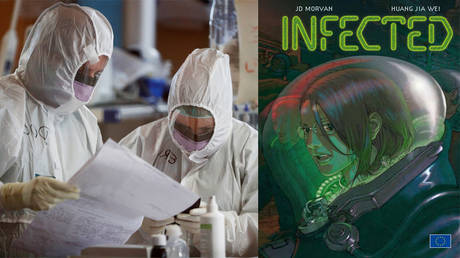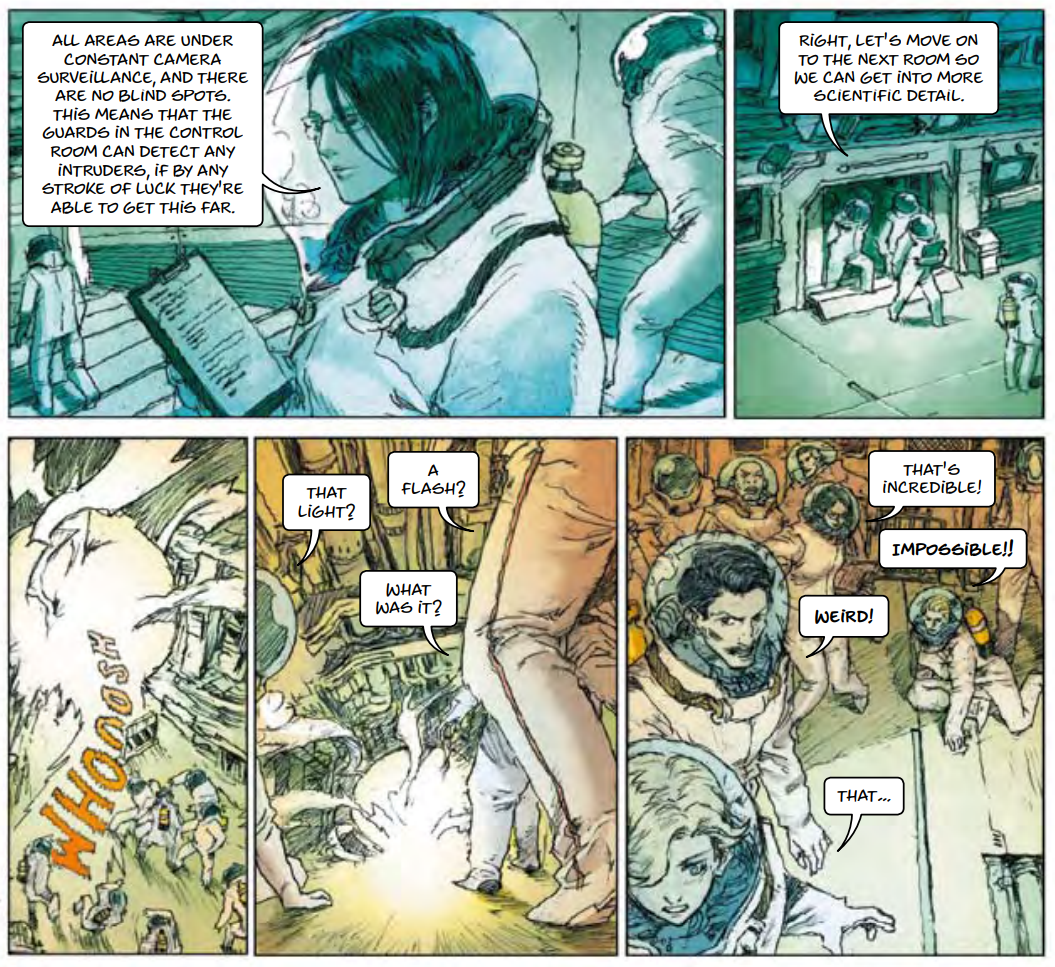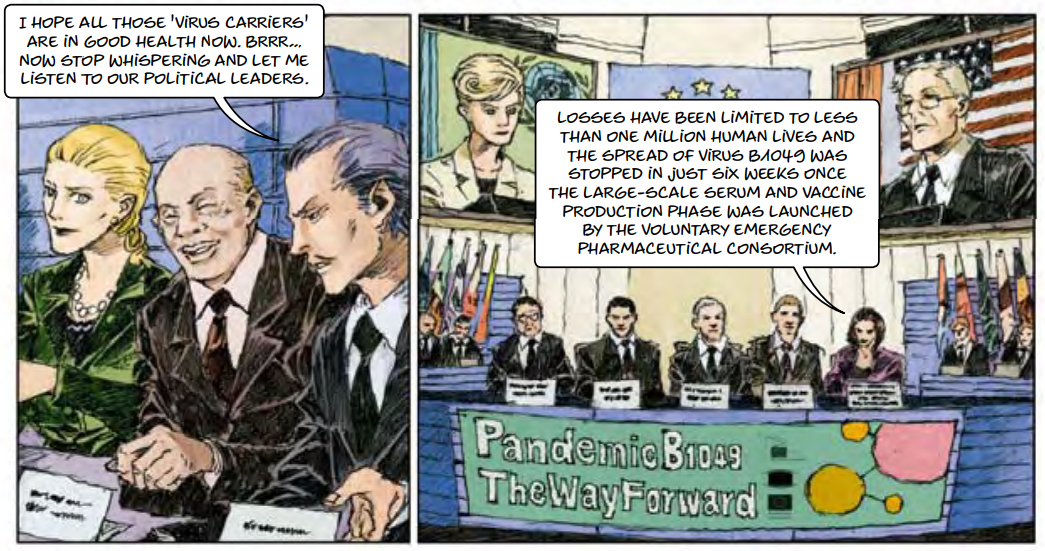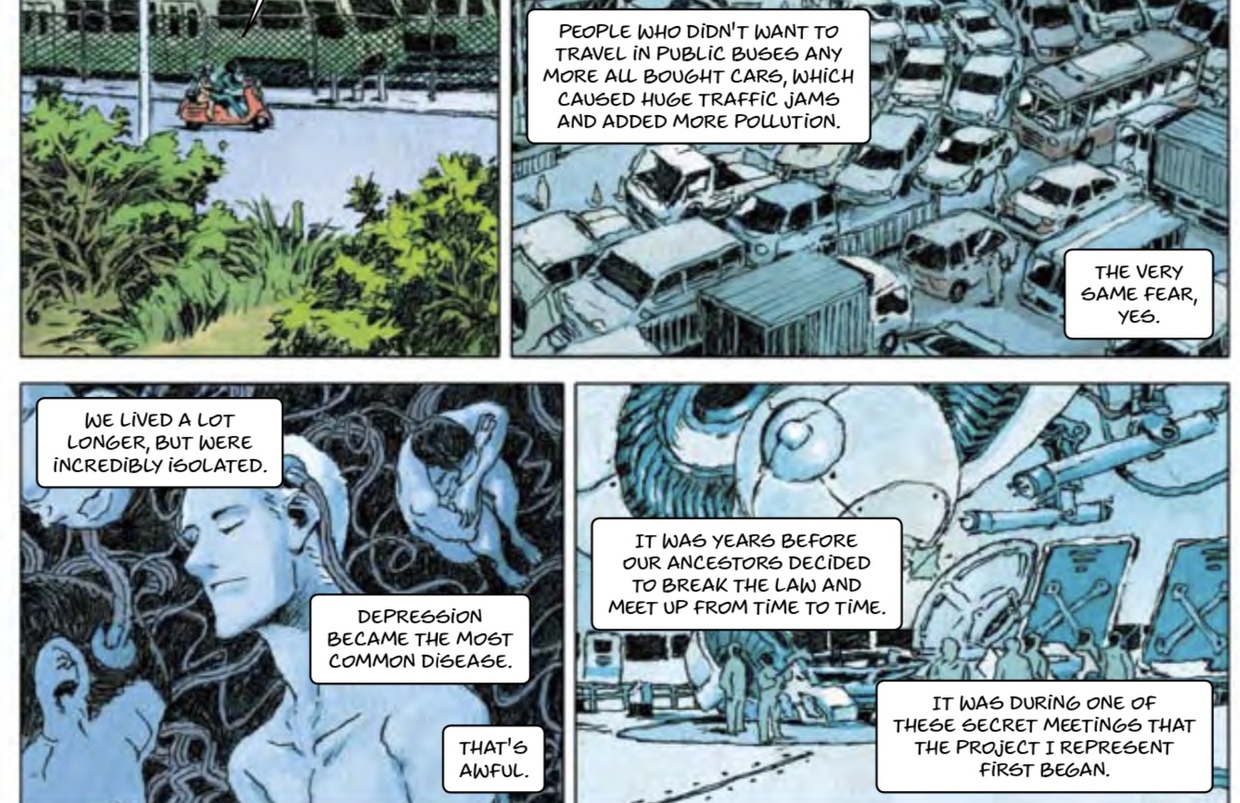
A pandemic has claimed a million lives despite a vaccine sent from the future, yet EU officials are patting themselves on the back for a good job and mull even more bureaucracy. That is how a comic book published by the EU ends.
While there is no shortage of epidemic fiction out there, some titles are more obscure than others. The comic book “Infected” by French writer Jean-David Morvan is not an international bestseller, yet it surely stands out. For one, despite being released in 2012, it features some of the hot-button elements of the real Covid-19 pandemic we are living through today. And it was also published by the EU, so you may guess who the ultimate “good guys” in it are.
In a nutshell, the comic is about a man who travels from the future to our time to prevent a devastating global infection with the help of a hot Chinese assistant to the UN’s top epidemic expert.

The reader witnesses bewildering events at a Chinese P4 biosafety level lab, an attempt to steal the cure and sell it to the Big Pharma, a scene of an animal-to-human virus transmission at a crowded Asian wet market, and even a self-congratulatory session at the EU Parliament building in Brussels.

In the fictional reality the authorities stop the killer virus in just six weeks after unrolling mass production of serum and vaccine from samples brought by the time-traveling man – and before that, the pandemic is notably “out of control.” At the end of the book, the bureaucrats declare losing less than a million lives as a job well done. The US Secretary of State and UN Secretary General readily agree via a video link, while China, Russia and others have, seemingly, not been invited.

Sprinkled with in-jokes about Brussels’ abundance of top officials, there are four cringeworthy pages in which the Eurocrats deliver to the public a bold plan for future pandemics: “a comprehensive approach to health based on new and better collaboration between the sectors that are directly or indirectly related to animal and human health” that, most importantly, will not require any additional taxation. Yawn.
Quite an underwhelming response to a plague that was supposed to kill a billion and transform the world into a dictatorship inhabited by permanently depressed solitary clones.

But while we may not have a time-traveling hero aiding us in the ongoing pandemic, there are parts of this fictional story that sound frighteningly familiar. Take, for instance, the efficiency with which the real-life pencil-pushers in Brussels acted in the early days of Covid-19.As the coronavirus found its way to Italy and Spain, governments in Europe went into an everyone-for-himself mode, banning foreign trade in crucial medical equipment, blocking borders and taking other unilateral steps as the EU faltered with a unified response. Weeks later, EU Commission chief Ursula von der Leyen would be writing public apologies to Italians for leaving them in the cold when it mattered most.
Now that European nations are relaxing their restrictions, there is no coherent pan-EU approach in place either. French Interior Minister Christophe Castaner, for example, recently scolded the Italian government for reopening its border to tourists, which was too soon for Paris’ taste.
The EU-published comic book may lack in originality, as any fan of science fiction like “12 Monkeys” would attest, but it’s hardly a point to complain about. After all, it was meant to sneak information about important real issues in between an elevator fight scene and grim images of bubo-covered children.
But once you analyze the plot, “Infected” seems more like a tongue-in-cheek comment on bureaucratic failures than an explanation of why the EU is needed. Knowing everything about the fictional super-contagious treatable virus virtually from day one, the authorities still failed to stop all global traffic or keep everyone at home to nip the infection in the bud. In that the imaginary reality interlocks with ours, it seems.
Think your friends would be interested? Share this story!




